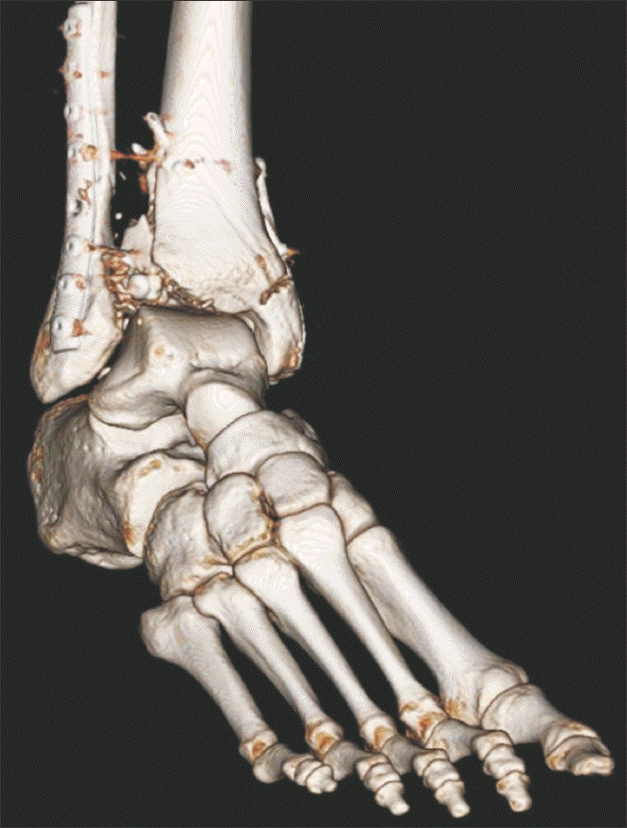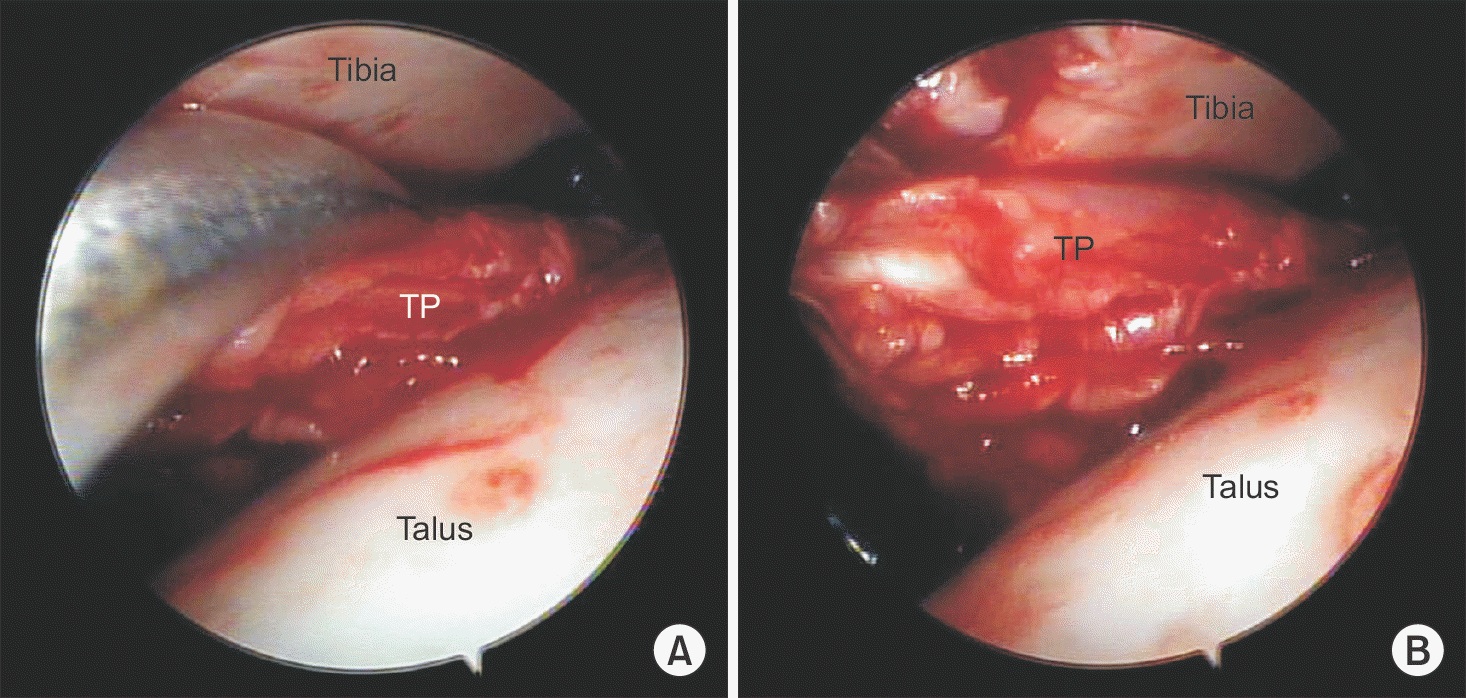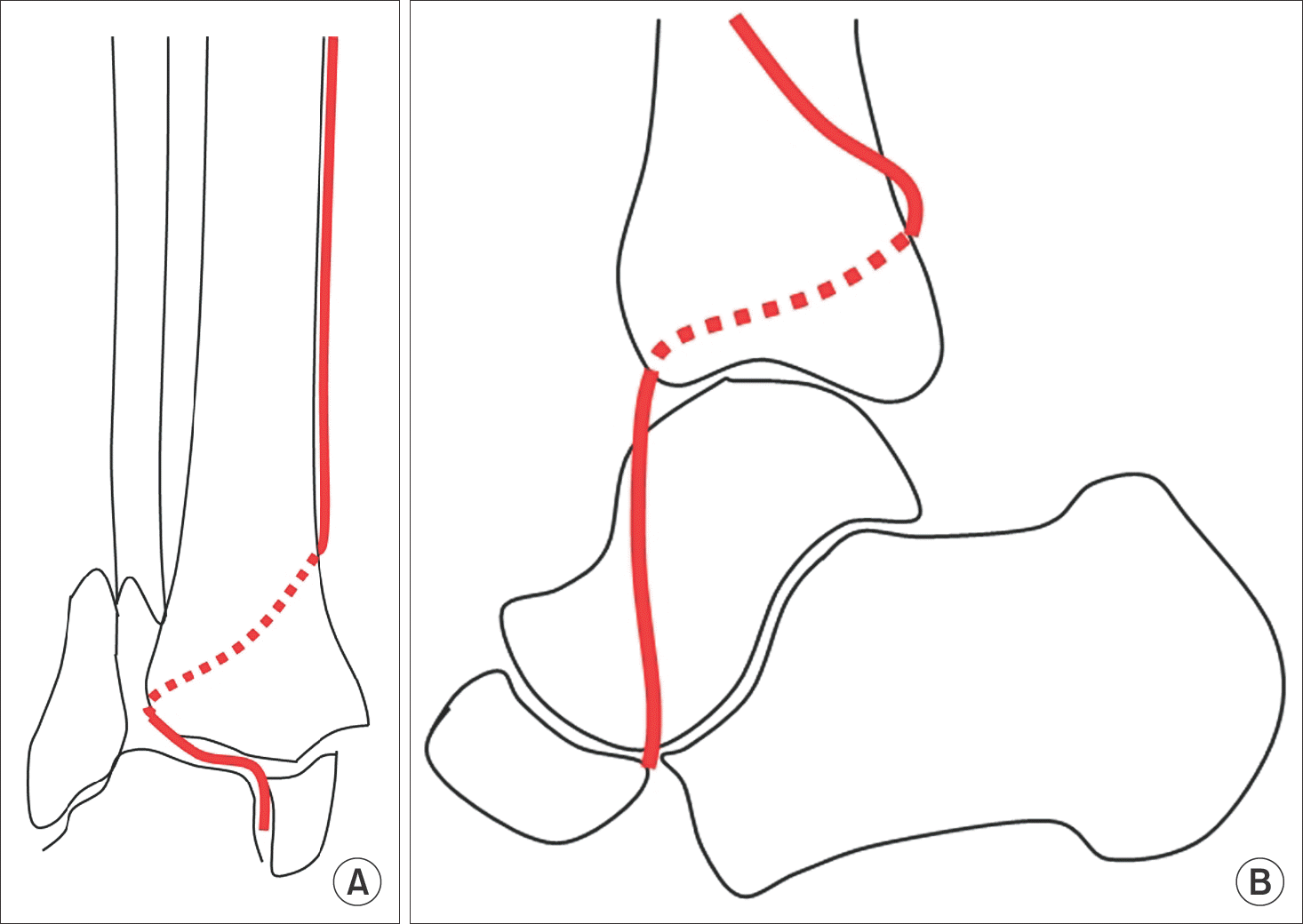Abstract
Fracture and fracture-dislocation of the ankle may be caused by a variety of mechanisms. In addition to the fracture, injury of soft tissue such as ligaments, tendons, nerves, and muscles may occur. Among these, tibialis posterior tendon injury is difficult to identify due to swelling and pain at the fracture site. There is no clear finding in radiological examination, therefore, it is found during surgery. In this case, irreducible fracture-dislocation of the ankle due to tibialis posterior tendon interposition was observed after the primary operation. The authors obtained satisfactory results in performance of a secondary operation assisted with arthroscopy.
Go to : 
REFERENCES
1.De Zwart DF., Davidson JS. Rupture of the posterior tibial tendon associated with fractures of the ankle. A report of two cases. J Bone Joint Surg Am. 1983. 65:260–2.

2.West MA., Sangani C., Toh E. Tibialis posterior tendon rupture associated with a closed medial malleolar fracture: a case report and review of the literature. J Foot Ankle Surg. 2010. 49:565. .e9-12.

3.Ceccarelli F., Faldini C., Pagkrati S., Giannini S. Rupture of the tibialis posterior tendon in a closed ankle fracture: a case report. Chir Organi Mov. 2008. 91:167–70.

4.Hsiao KC., Tu CH. Irreducible fracture dislocation of the ankle: report of two cases. J Formos Med Assoc. 1994. 93(Suppl 3):S161-5.
5.Coonrad RW., Bugg EI Jr. Trapping of the posterior tibial tendon and interposition of soft tissue in severe fractures about the ankle joint. J Bone Joint Surg Am. 1954. 36:744–50.

6.BÖhler L. The treatment of fractures. 4th ed.Baltimore: William Wood;1936.
7.Parrish TF. Fracture-dislocation of the ankle; an unusual cause of failure of reduction: a case report. J Bone Joint Surg Am. 1959. 41:749–51.
8.Ermis MN., Yagmurlu MF., Kilinc AS., Karakas ES. Irreducible fracture dislocation of the ankle caused by tibialis posterior tendon interposition. J Foot Ankle Surg. 2010. 49:166–71.

9.Walker RH., Farris C. Irreducible fracture-dislocations of the ankle associated with interposition of the tibialis posterior tendon: case report and review of the literature of a specific ankle fracture syndrome. Clin Orthop Relat Res. 1981. 160:212–6.
10.Romanes GJ. Cunningham’s textbook of anatomy. 12th ed.London, New York: Oxford University Press;1981.
Go to : 
 | Figure 1.Preoperative radiographs showed AO-OTA (Arbeitsgemeinschaft für osteosynthesefragen-Orthopedic Trauma Association) type C ankle fracture. Lateral subluxation of talus and widening of syn-demosis were observed. (A) Mortise view. (B) Lateral view. |
 | Figure 2.Postoperative radiographs after initial operation showed widening of syndesmosis. (A) Mortise view. (B) Lateral view. |
 | Figure 3.Three-dimensional computed tomography after initial operation showed widening of syndesmosis. |
 | Figure 4.Ankle arthroscopic findings during second operation. (A) Tibialis posterior tendon (TP) was found at intra-articular space of ankle. (B) Anatomical reduction was inhibited by interposition of tibialis posterior tendon. |




 PDF
PDF ePub
ePub Citation
Citation Print
Print




 XML Download
XML Download